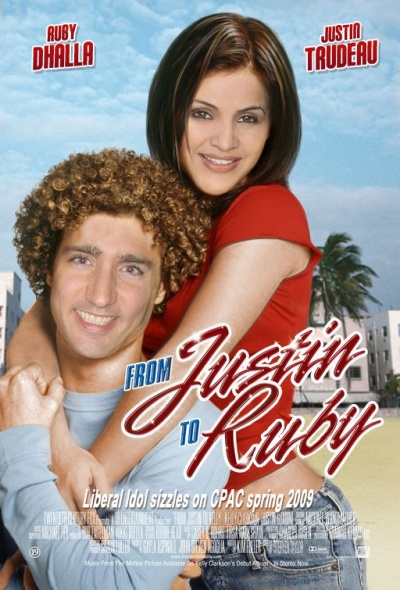In my last post, I speculated that New Brunswick Liberal MP (and son of a former Governor General) Dominic LeBlanc would throw his hat into the ring for leadership of the Liberal Party. Today, LeBlanc became the first MP to announce his intentions to seek the leadership running between Ignatieff on the relative right and Rae on the left of the party.
I’ve learned some other details about who might back a LeBlanc bid for leadership. I suggested yesterday that a Martin adviser such as Steve MacKinnon would back LeBlanc. With McKenna expected to remain outside of the race, I mused that MacKinnon may go LeBlanc. However, I’ve learned today that the former national director of the Liberal Party will likely back Ignatieff while communications gurus from Paul Martin’s PMO such as Scott Reid and Tim Murphy will be more likely to back the New Brunswick MP while a Liberal insider I spoke to expects John Duffy to go with Rae.
If Ujjal Dosanjh enters the race (if he survives a putative court challenge for a recount), he is expected to do so for the purpose of gathering BC delegates for Bob Rae.
Conservatives and New Democrats I have spoken with have previously feared a bid by Bob Rae. Conservatives believe that Rae will unite and polarize the left while the NDP fears massive hemorrhaging of their membership for Rae. Recently, however, Conservatives are more bullish on their future against a Rae-led Liberal Party as the Global Economic Crisis has severely diminished Rae’s futures on the leadership market. Conservatives would easily remind Canadians of Bob Rae’s tenure during Ontario’s last economic recession and would make the case that Rae days would soon return.
As for second tier candidates, Ruby Dhalla is considering a bid. Sources of mine in Brampton–Springdale have told me that even during the election (before the knives were in Dion’s back), Dhalla told Punjabi language radio that she would be running for the Liberal leadership. Dhalla is seen to be on the right-flank of the Liberal Party and backed Ignatieff’s bid during the 2006 leadership race so unless her candidacy caches fire, she may be building proxy support for the other Liberal professor.
Woe for my love of a great comedy, Justin Trudeau is not expected to jump into the leadership race. Indeed, the son of the former Liberal Prime Minister has not yet got his feet wet in the House of Commons. Trudeau is expected to back LeBlanc as the current standard-bearer of the next generation of Liberal leaders. Trudeau backed former Ontario-cabinet minister Gerard Kennedy for leadership in 2006. Kennedy is testing the waters for entry into this contest, however, many believe that as Dion’s kingmaker, Kennedy may sit this one out to put some time between this aberration and his ambition.
Yesterday, former Chretien finance minister John Manley tested the waters in a most self-deprecating way but found none to dive into as he metaphorically suggested. The author of the Harper-initiated Manley Report was seen by many Liberals as betrayal to a weakened, embarrassed and voiceless party on the opposition benches. Manley may find redemption in his party by organizing for a front-running candidate and this would have the benefit of keeping his name in the minds of Liberal partisans.
Ironically, Dion’s election as Liberal leader may see more longshots enter this race. Ambitious Liberals with at least an ounce of name recognition may see a divided field and plan a run up the middle. LeBlanc’s entry into the race gains credibility because he is first to announce. Others may see that LeBlanc is planning a Dion-like charge up the middle as Dion had done and work to position themselves as a more palatable consensus candidate. Ottawa politicos are guessing that the field of candidates will be necessarily narrow due to a shallow and parched pool of donors. Since leadership contenders can carry previous debts into the next Liberal race, the Liberal base will again be tapped for sparse cash from not only the next crop making the case to be the Liberal Party’s next PM, but from those that are resume building and those paying down old debts during an economic crisis.
UPDATE: Ruby Dhalla’s office contacted me and they would like you to know that Ruby Dhalla did not state that she was running for leader on Punjabi radio. So, for now it’s a matter of she said vs. they said. (UPDATE: I’m now concluding that these Brampton–Springdale sources are likely inaccurate. My sincere apologies to Ruby Dhalla on this point.) Also, Dhalla’s office wants everyone to know that the image above is doctored and that Dr. Dhalla did not pose for the photo. They asked that I remove it. However, I will not comply as the image is obviously satire.
